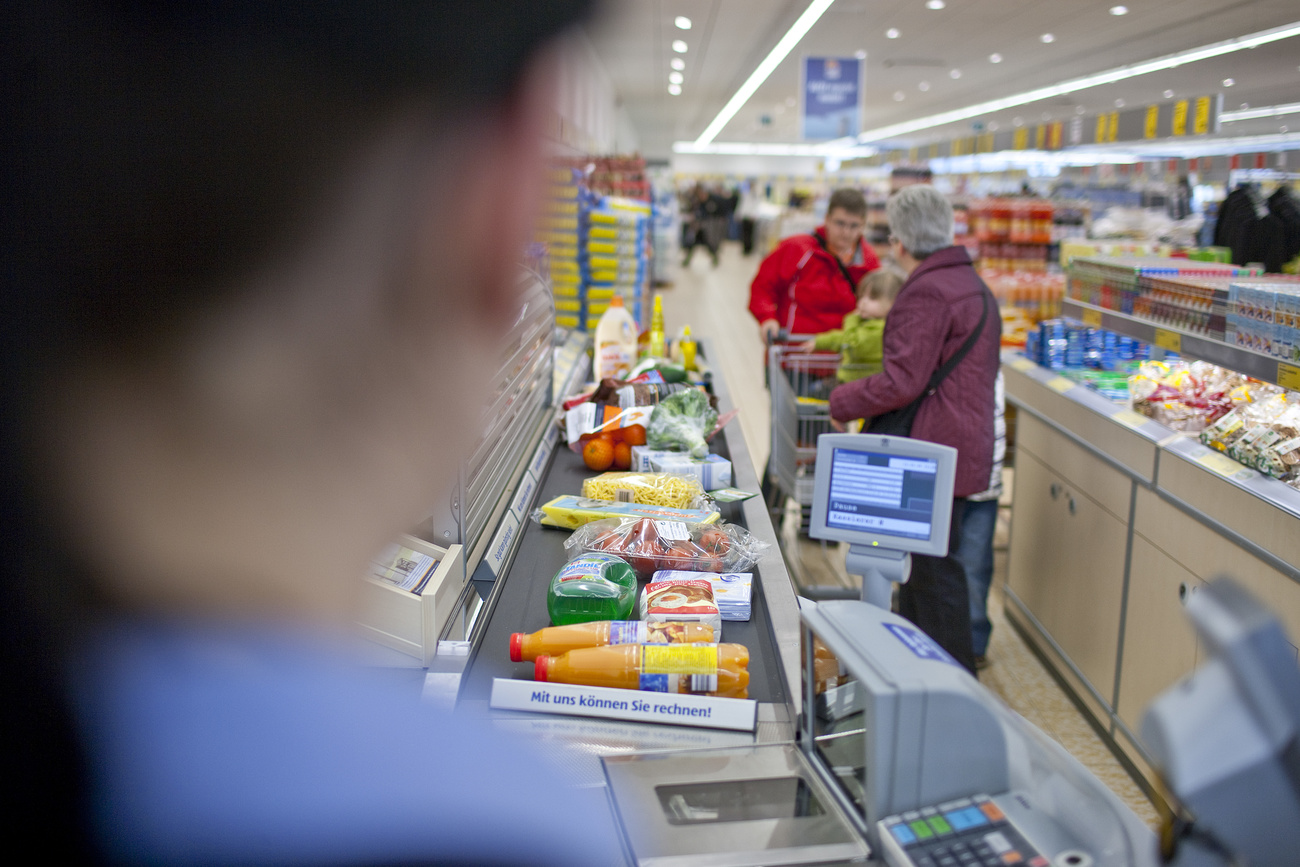
Inflation in Switzerland hits 30-year high

Annual inflation in Switzerland last year was 2.8%, the highest since it reached 3.4% in 1993.
The rise in the cost of oil products, gas, cars and rent were the main factors, the Federal Statistical Office (FSO) said in a statementExternal link on Wednesday. On the other hand, the price of medicine and mobile phone subscriptions fell.
Inflation was 1.6% in January and rose steadily to a peak of 3.5% in August, before falling back slightly. However, it remains significantly lower than in other countries. On Tuesday Switzerland’s main trading partner, Germany, said inflation had climbed to 7.9% for 2022.
The FSO also released the year-on-year figures for December: also an increase of 2.8%. This figure, down from 3% in October and November, is below analysts’ expectations of 2.9%-3.1%.
The consumer price index (CPI) fell by 0.2% in December 2022 compared with the previous month, reaching 104.4 points (December 2020 = 100). This is explained by several factors, including lower prices for fuel and heating oil, the FSO said. Prices for fruit and vegetables also fell, as did those for medicine. However, prices for holiday flat rentals and private transport rose.

More
Explainer: how Switzerland is dealing with rising prices

In compliance with the JTI standards
More: SWI swissinfo.ch certified by the Journalism Trust Initiative































You can find an overview of ongoing debates with our journalists here . Please join us!
If you want to start a conversation about a topic raised in this article or want to report factual errors, email us at english@swissinfo.ch.